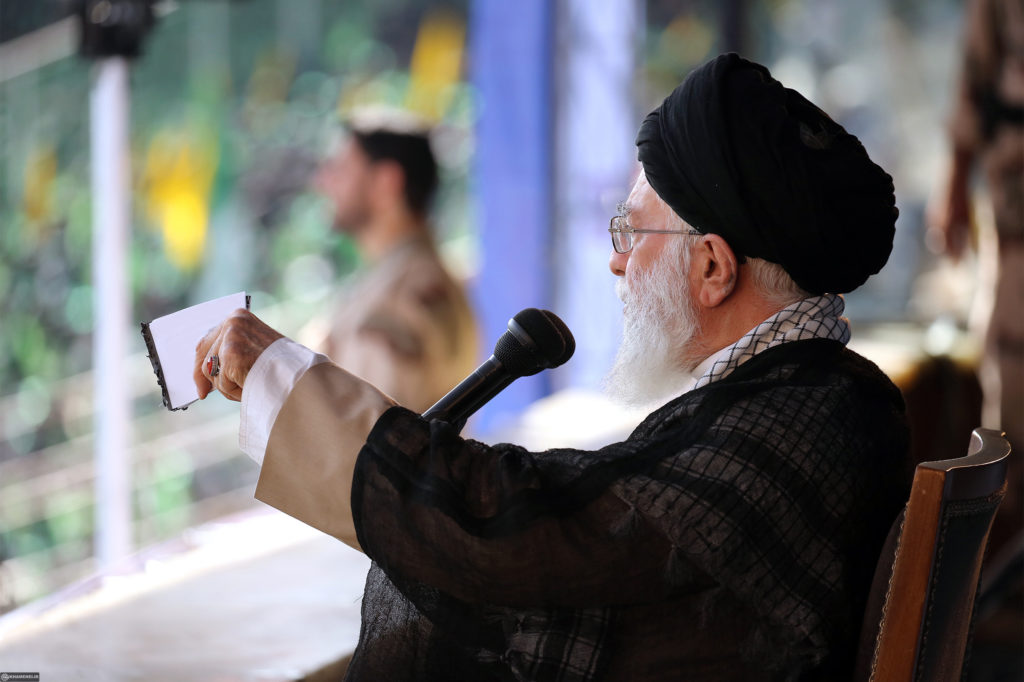Australia/Israel Review
Scribblings: Fatwa Chance
Mar 3, 2021 | Tzvi Fleischer

Here’s a quote everyone who is following the debate about Iran’s nuclear program should be aware of. It comes from Iran’s Intelligence Minister, Mahmoud Alavi, a man thought to be quite close to Iran’s Supreme Ruler, Ayatollah Ali Khamenei. Alavi said this on Iranian state television on Feb 8:
“Our nuclear program is a peaceful program and the Supreme Leader clearly said in his fatwa that producing nuclear weapons is against religious law and the Islamic Republic will not pursue it and considers it forbidden. But let me tell you, if you corner a cat it might behave differently than a cat roaming free. If they push Iran in that direction, it would not be Iran’s fault but the fault of those who pushed Iran.”
He was referring to a supposed fatwa (religious ruling) issued by Khamenei in 2003, forbidding the production of nuclear weapons. Many defenders of the 2015 Joint Comprehensive Plan of Action nuclear deal have referred to the supposed fatwa in arguing that Iran can be trusted not to use the deal to pursue nuclear weapons.
Alavi was not only implying that the fatwa might not apply in some circumstances, but more than this, he was also hinting what those circumstances were. He made the remarks above in the context of making the case that sanctions against Iran must be lifted – which is the Iranian regime’s consistent message to the outside world at the moment. In other words, he was implicitly saying, if sanctions are not lifted, Iran might have no choice but to build nuclear weapons. This does not seem like a very high barrier to reversing the fatwa’s supposedly comprehensive religious prohibition on nuclear weapons.
Nor was Alavi alone in sending such messages in recent weeks. Even more explicit was former Iranian diplomat Amir Mousavi, who told a Lebanese television station on Jan. 30, “A fatwa is issued in accordance with developing circumstances. Therefore, I believe that if the Americans and Zionists act in a dangerous manner, the fatwa might be changed.”
And Supreme Leader Khamenei himself has appeared to join this game of signalling regarding the fatwa’s inability to stop Iran. In a speech to the Assembly of Experts on Feb. 22, Khamenei denied that Iran wanted nuclear weapons, but, unlike in past such speeches, he made no mention of the fatwa, saying only that “Islamic thought and principles” were the reasons Iran was not seeking nuclear weapons. Moreover, in what seemed to be a veiled threat along similar lines to Alavi, he added, “The international Zionist clown is constantly saying ‘We won’t allow Iran to obtain nuclear weapons’ – but he should be told that if the Islamic Republic [of Iran] decided to obtain nuclear weapons, neither you [Israel] nor those greater than you [the US] would be able to stop it.”
The truth is the fatwa was always a red herring, despite its past use by both regime spokespeople and apologists for the regime. Even though the fatwa has been repeatedly mentioned by regime leaders as part of their propaganda efforts arguing their nuclear program was always peaceful, the text of this fatwa has never actually been published – unlike all of Khamenei’s other fatwas. Which is odd in itself.
But even more interestingly, the Iranian Government released an information sheet about the fatwa which says it is based on an anti-chemical weapons fatwa issued by Khamenei’s predecessor, Ayatollah Ruhollah Khomeini. Yet Khomeini reportedly reversed that fatwa during the 1980-88 Iran-Iraq War, and Iran employed chemical weapons during that war (as did Iraq, on an even larger scale). The US State Department assesses that Iran is currently pursuing chemical weapons capabilities – and Iran is also thought to have helped expand the chemical weapons program of its ally Syria.
Moreover, we know from the Iranian nuclear archives captured by Israel in 2018 that Iran had concrete plans to build five nuclear warheads before 2003, and that these plans were only partially suspended after that.
In other words, the never-published fatwa was likely intended merely as an order to pause Iran’s nuclear weapons program due to growing international scrutiny. Iran continued developing its capability to build nuclear weapons, but was not going to actually build them until the time was propitious, so the fatwa prohibited actually building them, but not working on them, until that point. When the regime decides the time is right, the fatwa would be no more of a barrier to constructing those nuclear weapons than Khomeini’s chemical weapons prohibition was to Iran’s past and current alleged chemical weapons stockpiles.
Alavi, Mousavi and Khamenei were also probably trying to pre-emptively blame America, Israel and others who oppose Iran’s aggressive rogue behaviour for “pushing” Iran toward atomic arms despite Teheran’s supposed peaceful intentions.
The world must not fall for this Iranian campaign of extortion – and needs to also recognise the supposed nuclear fatwa for the red herring it always was.






